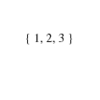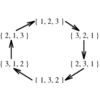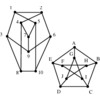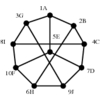1.3.7 Generating Graphs
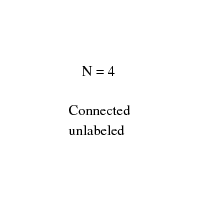

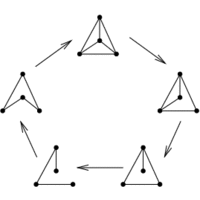
INPUT OUTPUT
Input Description:
Parameters describing the desired graph,
such as the number of vertices n, the number of edges m, or
the edge probability p.
Problem:
Generate (1) all, or (2) a random, or (3) the next graph satisfying
the parameters.
Excerpt from
The Algorithm Design Manual:
Graph generation typically arises in constructing test data for programs. Perhaps you have two different
programs that solve the same problem, and you want to see which one is faster or make sure that they always
give the same answer. Another application is experimental graph theory, verifying whether a particular
property is true for all graphs or how often it is true. It is much easier to conjecture the four-color
theorem once you have demonstrated 4-colorings for all planar graphs on 15 vertices.
A different application of graph generation arises in network design. Suppose you need to design a network
linking ten machines using as few cables as possible, such that the network can survive up to two vertex
failures. One approach is to test all the networks with a given number of edges until you find one that will
work. For larger graphs, more heuristic approaches, like simulated annealing, will likely be necessary.
Recommended Books
Related Problems
This page last modified on 2008-07-10
.
www.algorist.com

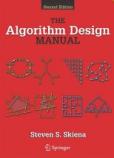



 The Art of Computer Programming, Volume 4 Fascicle 4: Generating All Trees; History of Combinationatorial Generation
The Art of Computer Programming, Volume 4 Fascicle 4: Generating All Trees; History of Combinationatorial Generation Six Degrees: The Science of a Connected Age
Six Degrees: The Science of a Connected Age Linked: The New Science of Networks
Linked: The New Science of Networks Random Graphs
Random Graphs Random Graphs
Random Graphs Efficient Algorithms for Listing Combinatorial Structures
Efficient Algorithms for Listing Combinatorial Structures Graphical enumeration
Graphical enumeration